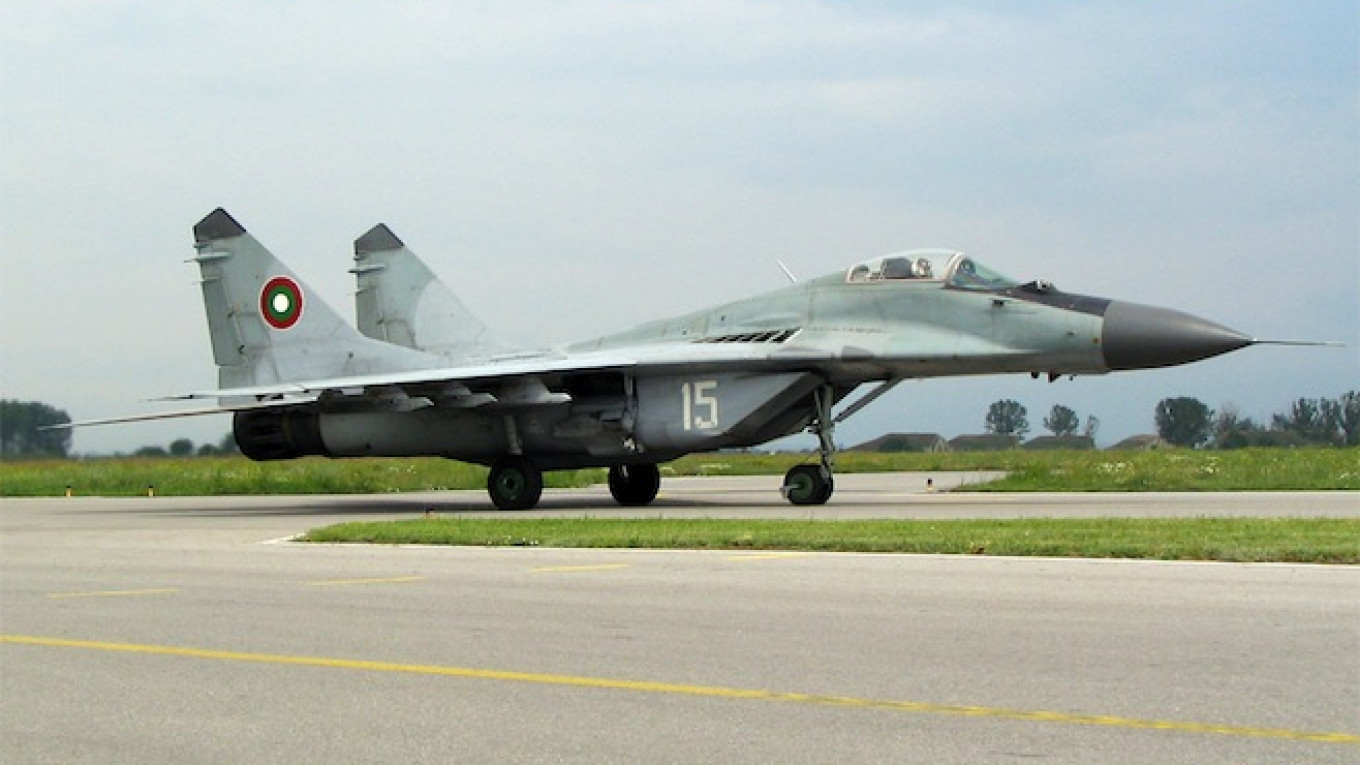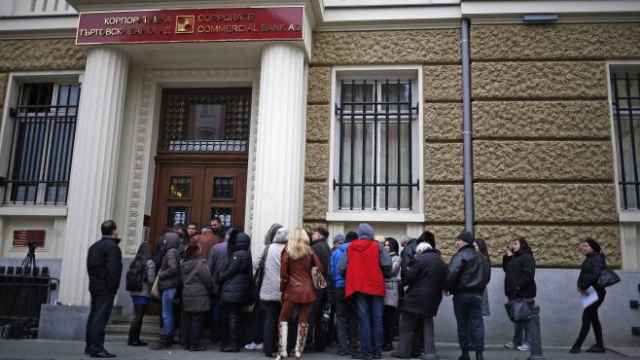SOFIA — To reduce its dependence on Russia, Bulgaria is working to sign a contract with Poland as early as July to service Sofia's Soviet-era MiG-29 fighter jets, maintained until now by Russia, Defense Minister Nikolay Nenchev has said.
A standoff between the West and Russia over Ukraine has forced Bulgaria, part of the Soviet-dominated Warsaw Pact during the Cold War but a NATO member since 2004, to walk a tightrope over its military, energy and trade relations with Russia.
Turning to Poland for servicing the jets would mark another step by a country once in Moscow's orbit to gradually switch to non-Russian supplies, a trend that sped up after Europe and the United States imposed sanctions on Russia.
"We will do everything possible to reduce our dependence on Russia," Nenchev said Monday. "Bulgaria is the only NATO member that is almost 90 percent dependent on Russia. It worries me very much, and I would not like to continue in this way."
Bulgaria needs to repair its aging fleet of Soviet-made MiG-29 fighter jets. It has a contract with Russia to maintain them that is due to expire in September.
"We need to repair six of our engines and we have made serious efforts to find an alternative," Nenchev said, adding that the price being offered by Poland was cheaper than Russia's. "We held very dynamic talks with the Polish side for several months and I think we could sign a contract this month."
Polish Model
Bulgaria and other ex-communist countries have been rattled by Russia's annexation of Crimea under President Vladimir Putin, and by a pro-Russian separatist rebellion in eastern Ukraine, where violence continues despite a February cease-fire.
Bulgaria is one of six eastern European nations hosting new command units staffed with national and NATO soldiers being set up in response to that crisis.
"I do not hesitate to say it. After seeing that the Putin regime had a particularly aggressive behavior to a sovereign state, we cannot feel secure," Nenchev said. "We are negotiating with the Polish side, who are our partners in NATO and managed to break away from their dependence on Russia."
Bulgaria and the United States have staged a series of joint military drills since the Ukraine crisis erupted last year. Nenchev said more than 70 were planned in Bulgaria in 2015.
He said up to 2,500 U.S. army personnel could be located in Bulgaria during such drills and he was authorized, under certain circumstances, to allow a further 2,500.
"Our reproach to Russia is that it brought back something that, until recently, was unthinkable in Europe — war," said Nenchev.
Nenchev expects Bulgaria and the U.S. to renew an agreement early next year at the latest for the shared use of several military facilities in Bulgaria, which was signed in 2006.
Last week, Bulgaria said it was looking to buy military jets to revamp its fleet and is considering approaching Belgium, the Netherlands, Greece and other countries for purchases. It is not clear whether these would be new or second-hand planes.
"We are talking about a squadron but it is too early to give more details," Nenchev said. "We are still considering what type of aircraft Bulgaria needs."
A Message from The Moscow Times:
Dear readers,
We are facing unprecedented challenges. Russia's Prosecutor General's Office has designated The Moscow Times as an "undesirable" organization, criminalizing our work and putting our staff at risk of prosecution. This follows our earlier unjust labeling as a "foreign agent."
These actions are direct attempts to silence independent journalism in Russia. The authorities claim our work "discredits the decisions of the Russian leadership." We see things differently: we strive to provide accurate, unbiased reporting on Russia.
We, the journalists of The Moscow Times, refuse to be silenced. But to continue our work, we need your help.
Your support, no matter how small, makes a world of difference. If you can, please support us monthly starting from just $2. It's quick to set up, and every contribution makes a significant impact.
By supporting The Moscow Times, you're defending open, independent journalism in the face of repression. Thank you for standing with us.
Remind me later.






